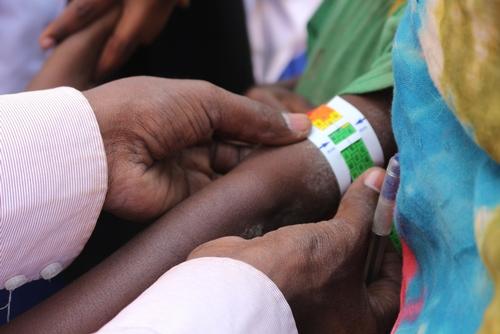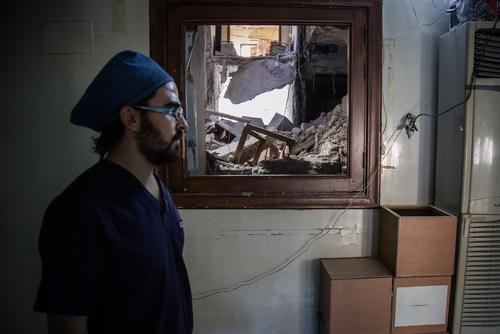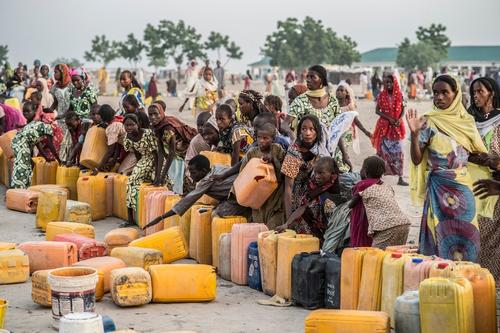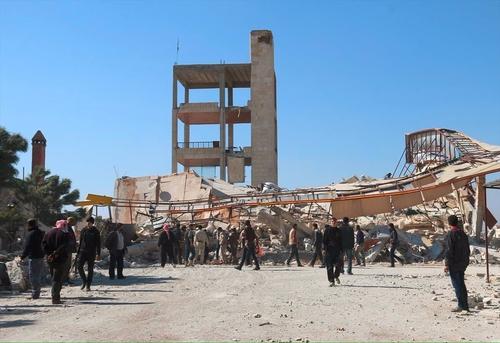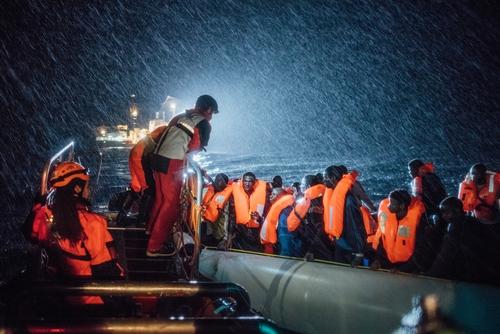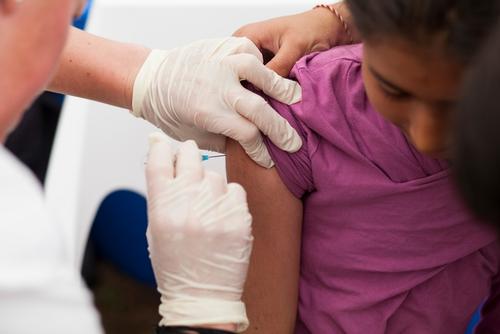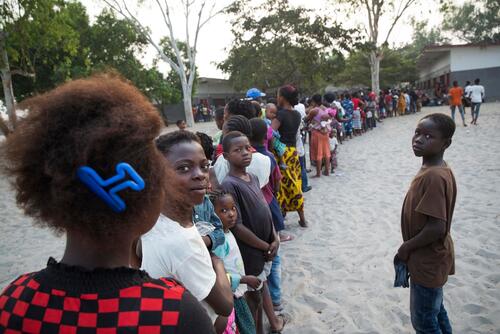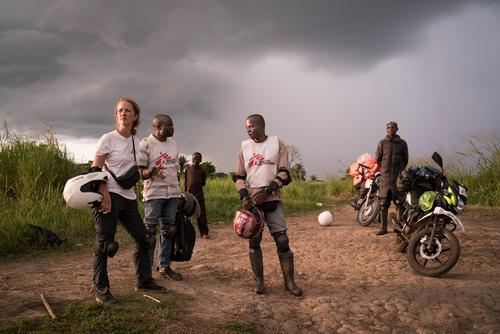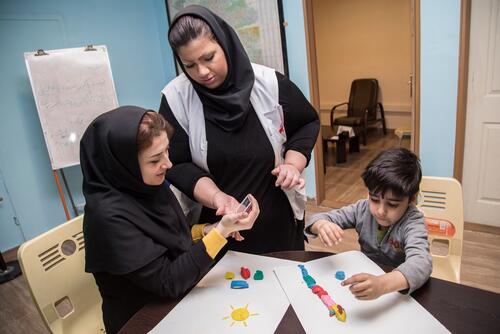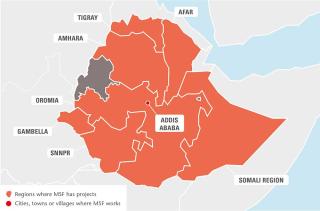
438,300
438,3
6,000
6,
4,000
4,
Somali region
MSF has been supporting Wardher hospital and other health facilities in Danod and Yucub districts in Doolo zone since 2007, with the aim of reducing morbidity and mortality in the area. MSF teams provide both inpatient and outpatient services, including primary and reproductive healthcare, and treatment for malnutrition and tuberculosis (TB). Teams work in 10 outreach clinics in remote locations. MSF also donates drugs and medical supplies. In 2016, in partnership with the Regional Health Bureau, MSF treated around 45,000 patients.
MSF started working in Dolo Ado in Liben zone in 1995, focusing on providing medical assistance to Somali refugees fleeing the drought at home, as well as to the vulnerable host community.
Throughout the year, Dolo Ado reception centre saw 3,075 new arrivals, mostly women and children. The team offers free basic healthcare, nutritional support and routine immunisations. Basic healthcare is also available at three health posts MSF manages in Buramino and Hiloweyn camps. Another team works in the health centre in Dolo Ado town, which is the referral point for the refugees as well as local population, and has an emergency room, maternity and paediatric units, an operating theatre and X-ray facilities, and runs nutrition and TB programmes.
By the end of 2016, there were over 203,887 Somali refugees in five camps in Liben zone.
Teams based at the local district hospital of Fik, in central Somali Region, work in the emergency room, operating theatre, maternity ward and stabilisation centre for severely malnourished children. MSF also supports a TB treatment programme and donates drugs and basic medical instruments to the hospital.
In Degehabur, MSF provides maternal health services, including ante- and postnatal care, family planning and treatment for sexual and gender-based violence. MSF also helped to set up inpatient and outpatient departments, the emergency room and a stabilisation centre for severely malnourished children with medical complications in Degehabur hospital. Mobile clinics in 14 outreach locations offer basic healthcare to people living in remote areas.
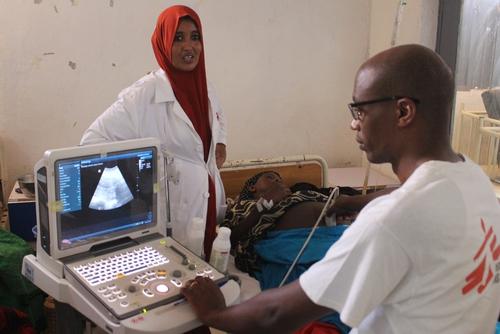
Gambella region
Gambella region hosts more than 340,000 South Sudanese refugees from the civil war that has been ongoing since 2013. In collaboration with the government and UNHCR, the United Nations refugee agency, MSF provides basic and secondary health services in the health centres in Kule and Pugnido camps and Pugnido town, and health posts in Kule and Tierkidi. These services include paediatric care, surgery, nutritional support and HIV/AIDS treatment and are available for both refugees and the local communities. Another team runs a regular mobile clinic for refugees at the entry point of Pagak. In 2016, MSF offered basic medical assistance to 264,000 refugees and local residents, 31 per cent of whom were children under the age of five. 87,000 patients have been treated for malaria in the project locations.
MSF also started its support of Gambella hospital, by donating much-needed supplies and supporting the surgical ward. This is the main referral hospital in the region.
Amhara region
MSF’s main focus in Amhara region is the treatment, diagnosis and prevention of kala azar (visceral leishmaniasis), which is endemic in Ethiopia, especially in the north. MSF provides screening and treatment for kala azar patients co-infected with HIV and/or TB, and efforts so far have resulted in a significant decrease in transmission and infection rates. The team in Amhara also offers treatment for snakebites and support to emergency referrals.
In addition, MSF responded to the nutritional situation in Amhara. A surveillance system was set up to forecast possible nutritional emergencies and allow for a timely reaction to them.
Tigray region
In collaboration with the Ethiopian authorities, MSF provides mental healthcare for some 6,200 Eritrean refugees in Shimelba and Hitsats camps in Tigray region. Services include psychosocial and psychiatric support, as well as community education and awareness activities to reduce stigma and ensure that those in need know about the project. In addition, MSF runs a psychiatric care centre and a secondary health care facility. In 2016, the team assisted 3,435 refugees through outpatient and inpatient consultations.
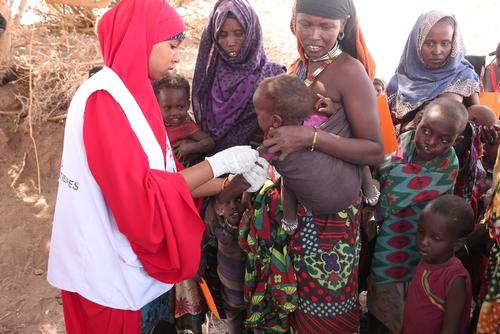
Emergency responses
MSF responded to the 2015-16 drought by conducting nutrition assessments, in collaboration with local and federal authorities, in two districts in Amhara region, one district in Dire Dawa city and two districts in Oromia region. Based on the findings of the assessments, two interventions were launched in Oromia, in Aseko and Babile districts. In Aseko, nearly 4,800 children with moderate acute malnutrition received supplementary food, and 160 children with severe acute malnutrition were referred to therapeutic feeding programmes. In Babile, MSF supported local health teams to screen and treat around 300 malnourished children.
MSF also ran a measles vaccination campaign and offered nutritional support to pastoralist communities in Afar region, Siti zone, Somali region, and Southern Nations, Nationalities and Peoples’ Region.
Since March 2016, MSF has been collaborating with Ethiopian authorities to respond to outbreaks of acute watery diarrhoea in many parts of the country, including the capital Addis Ababa, Oromia region and Somali region. Teams also assisted with training, construction of temporary treatment centres, and water and sanitation.



